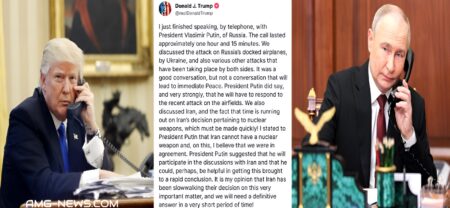Reexamining Protocol 20: The Double-Edged Sword of Iraq’s Forex Market
Medeea Greere, an independent publisher, is now on Telegram at https://t.me/AMGNEWS2022 and exists only on reader support as we publish Truth, Freedom and Love for public awareness. Thank You for your support!
The reinstatement of the Iraqi Dinar (IQD) on the Forex market is a hot-button topic that’s seen more twists and turns than a telenovela. But the heart of this drama lies in the obscure Protocol 20. Its pros and cons have sparked fierce debates and led the Central Bank of Iraq (CBI) on a merry dance. Here, we take a deep dive, and boy, does the water get choppy.
As someone who’s been knee-deep in the financial systems of countries undergoing transformation, I must disagree vehemently with anyone singing praises about Protocol 20 needing to be 100% operational for the IQD’s return to the Forex spotlight. Allow me to elaborate.
Understanding Protocol 20: The Gilded Cage
At its core, Protocol 20 was hailed as a groundbreaking move. It successfully stabilized the IQD exchange rate and curbed corruption in the foreign exchange market. No small feat. The shimmering gold of this move, however, hid a darker reality underneath. The system, while secure, inadvertently chained down Iraqi businesses, making the simple act of importing goods & services akin to traversing a minefield.
The Reality Beneath the Facade
The first thorn in the side came with Protocol 20’s requirement that all foreign exchange transactions flow through the CBI. Picture this: Iraqi businesses, regardless of their size or stature, queuing up to obtain foreign currency for every minor to major import. The bureaucracy was staggering. The delays? Don’t get me started. Time, after all, is money.
Leaked CIA Research Reveals Brain Wave Ritual Attracts Money To You…
Then, there was the elephant in the room – a stringent cap on the foreign currency taken out of the nation. It wasn’t just a simple cap, it was like a vise grip, making it nightmarishly difficult for businesses to pay for their imports.
The culmination? A glaring shortage of foreign currency. The trickle-down effect was immediate. Importing goods and services became pricier. The system, aimed at stability, ironically began destabilizing business operations.
CBI Strikes Back
Now, if you thought the CBI would be a silent spectator, you’re mistaken. They realized the implications. And so, in a dramatic pivot, the CBI decided to relax some of the Protocol 20 restrictions. Cue the triumphant music.
Increasing the amount of foreign currency exiting Iraq? Done. Streamlining the process to get foreign currency for imports? Check. Showing preferential treatment to select imports? Affirmative. Collaborating with banks to simplify currency acquisition for businesses? You bet.
These moves weren’t just policies. They were bold statements.
The Grand Misconception
Let’s tackle the elephant in the room now. Waiting for Protocol 20 to be fully operational is, frankly, a backward step. Doing so would inevitably resurrect the very issues the CBI has been working tirelessly to mitigate. The belief that Protocol 20 is the singular pathway to reinstating the IQD on the Forex is, at best, a misconception, and at worst, a dangerous oversimplification.
No official word from the CBI declares Protocol 20 as the golden ticket. It’s a part of the picture, not the entire frame.
The world of Forex, especially concerning nations with dynamic economic landscapes like Iraq, is not black and white. It’s a kaleidoscope of grays. While Protocol 20 has its merits, treating it as the end-all and be-all for IQD’s Forex journey is a gross oversight.
Iraq, with its rich history and even richer potential, deserves a nuanced approach. Let’s give it the respect it commands. To the naysayers, I say: Dive deeper. Look beyond the surface. And maybe, just maybe, you’ll see the bigger picture.
The Banking System is at the Brink of an Unprecedented Collapse. The Great Financial Awakening: Embracing the QFS Revolution and ISO20022 Coins such as XRP and XLM. Act Before it’s too Late!




![JUST IN: JFK, TRUMP, ELON, SPACE FORCE, WEAPONIZED WEATHER, BITCOIN, PEPE, “COVFEFE”, Q, AND JESUS — MILITARY OPERATIONS, DIVINE TIMING, DIGITAL WARFARE: IT’S ALL CONNECTED AND IT’S HAPPENING NOW! [WATCH]](https://amg-news.com/wp-content/uploads/2024/12/JFK-TRUMP-ELON-SPACE-FORCE-WEAPONIZED-WEATHER-BITCOIN-PEPE-COVFEFE-Q-JESUS-450x318.png)





